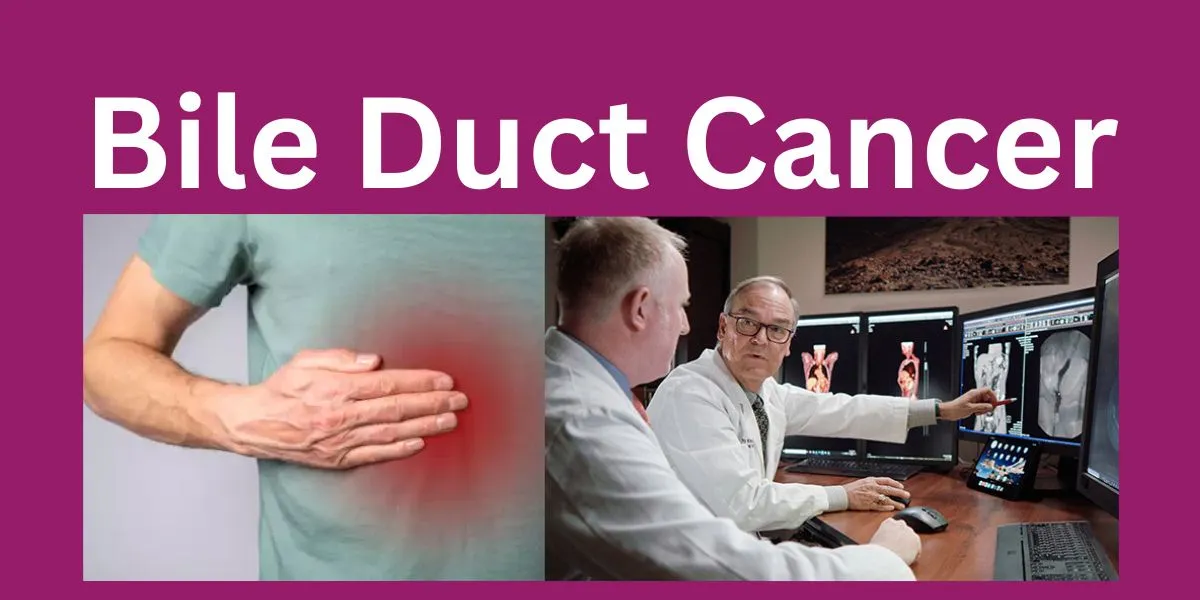Bile duct cancer, also called cholangiocarcinoma, is a rare but serious condition that can leave many scratching their heads in confusion. What is it? How does it affect the body? And more importantly, what can be done about it? Let’s dive into everything you need to know about bile duct cancer — simplified, yet detailed.
What Is Bile Duct Cancer?
Bile duct cancer is a type of cancer that forms in the bile ducts. These ducts are small, tube-like structures that carry bile — a fluid your liver makes to help digest fats — to your small intestine. Think of them as tiny highways helping your digestive system run smoothly.
When cancer develops in these ducts, it can block the flow of bile, causing various health issues. The condition is relatively rare, but understanding it can be lifesaving.
Types of Bile Duct Cancer
1. Intrahepatic Cholangiocarcinoma
This type occurs in the bile ducts located within the liver. While it’s often mistaken for liver cancer, it’s a distinct condition.
2. Perihilar Cholangiocarcinoma
Also called hilar cholangiocarcinoma, this type develops at the junction where the bile ducts leave the liver. It’s the most common form of bile duct cancer.
3. Distal Cholangiocarcinoma
This type forms in the bile ducts closer to the small intestine. It’s often diagnosed later due to its subtle symptoms.
What Causes Bile Duct Cancer?
While the exact cause is unclear, several factors can increase your risk. It’s a bit like assembling pieces of a puzzle:
- Chronic inflammation: Conditions like primary sclerosing cholangitis can irritate the bile ducts over time.
- Liver diseases: Hepatitis B or C and cirrhosis can also play a role.
- Parasitic infections: In some parts of the world, liver fluke infections are a common risk factor.
- Genetic factors: Sometimes, it’s just in your DNA.
- Lifestyle choices: Smoking and excessive alcohol consumption might contribute to the risk.
Symptoms of Bile Duct Cancer
Early detection can be tricky because the symptoms are often vague. But here are some red flags to watch for:
1. Jaundice
This is the yellowing of the skin and eyes, caused by a buildup of bilirubin (a substance in bile).
2. Itchy Skin
Unexplained, persistent itching could be an early sign.
3. Abdominal Pain
Particularly in the upper right side, this could signal bile duct blockages.
4. Unintentional Weight Loss
Losing weight without trying might be a warning sign.
5. Dark Urine and Pale Stools
Changes in your body’s waste products can also indicate bile duct issues.
How Is Bile Duct Cancer Diagnosed?
Doctors rely on a combination of tools to get to the bottom of things:
1. Blood Tests
Looking for markers like elevated liver enzymes or bilirubin levels.
2. Imaging Tests
CT scans, MRIs, and ultrasounds help visualize the bile ducts and surrounding organs.
3. Biopsy
Taking a tissue sample for examination is the gold standard for diagnosis.
4. Endoscopic Tests
Procedures like ERCP (endoscopic retrograde cholangiopancreatography) allow doctors to see inside the bile ducts.
Stages of Bile Duct Cancer
Like most cancers, bile duct cancer has stages:
- Stage 0: Abnormal cells are present but haven’t spread.
- Stage I: Cancer is confined to the bile ducts.
- Stage II: It has spread to nearby tissues.
- Stage III: Nearby lymph nodes are affected.
- Stage IV: The cancer has metastasized to other organs.
Treatment Options for Bile Duct Cancer
The treatment plan depends on the cancer’s stage and location. Let’s break it down:
1. Surgery
If caught early, surgery to remove the affected bile duct or part of the liver may be an option.
2. Liver Transplant
For some patients, replacing the liver might be the best bet.
3. Radiation Therapy
This uses high-energy beams to target and kill cancer cells.
4. Chemotherapy
Drugs like gemcitabine and cisplatin can slow the cancer’s growth.
5. Palliative Care
For advanced cases, the focus shifts to managing symptoms and improving quality of life.
Can Bile Duct Cancer Be Prevented?
While you can’t always avoid it, some steps might reduce your risk:
- Maintain a Healthy Weight: Obesity is linked to several cancers, including this one.
- Avoid Smoking: Tobacco use is a known risk factor.
- Limit Alcohol Consumption: Excessive drinking can damage your liver.
- Get Vaccinated: Hepatitis B vaccines can lower your risk.
- Address Liver Flukes: If you live in or travel to areas with liver flukes, avoid consuming raw or undercooked fish.
Living With Bile Duct Cancer
Being diagnosed with bile duct cancer is undoubtedly overwhelming, but you’re not alone. Support groups, counseling, and a strong network of family and friends can make all the difference. Focus on what you can control — like nutrition, exercise, and staying informed.
Why Early Detection Matters
Catching bile duct cancer early can significantly improve outcomes. Don’t ignore persistent symptoms or delay regular checkups. If something feels off, trust your gut and see a doctor.
What to Ask Your Doctor
When visiting your doctor, arm yourself with questions:
- What stage is my cancer?
- What are my treatment options?
- What side effects should I expect?
- Are there any clinical trials available?
- How can I manage my symptoms?
The Role of Research
Advancements in medical research are offering new hope for bile duct cancer patients. Immunotherapy, targeted therapies, and genetic testing are some of the exciting areas making strides in treatment.
Final Thoughts
Bile duct cancer may not be a household name, but understanding it is crucial. Whether you’re seeking answers for yourself or a loved one, being informed empowers you to make better decisions. Stay vigilant, ask questions, and advocate for your health.
FAQs About Bile Duct Cancer
1. Is bile duct cancer curable?
In early stages, bile duct cancer may be curable with surgery or a liver transplant. Advanced stages are more challenging to treat, but therapies can help manage the disease.
2. How common is bile duct cancer?
Bile duct cancer is rare, accounting for less than 1% of all cancers.
3. Can lifestyle changes lower the risk of bile duct cancer?
Yes, maintaining a healthy lifestyle, avoiding smoking, limiting alcohol, and addressing liver health can reduce risk.
4. What is the prognosis for bile duct cancer?
The prognosis varies depending on the cancer’s stage and location. Early detection improves survival rates significantly.
5. Are there support groups for bile duct cancer patients?
Yes, many organizations and online communities offer support and resources for those affected by bile duct cancer.










